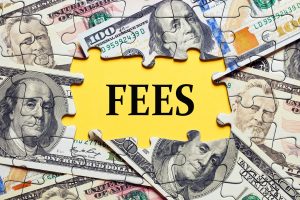Junk fees are everywhere. Auto dealers charge consumers thousands of dollars for add-on products that have little or no value. Hotels charged consumers over $2 billion in “resort fees” in 2015 alone. Rental car companies can tack on numerous separate fees, in addition to the actual rental cost, and often do so after the car has been returned (one such “cleaning fee” is $400). These fees have become an expected way of life for consumers in almost every industry, but the Federal Trade Commission (“FTC”) has recently announced its plan for a rule to rein in these problematic practices.
The FTC has taken various approaches to junk fees. It regulates the way that telemarketers and third-party online sellers advertise costs, the disclosure of funeral goods and services costs, and the process by which “negative option” marketers obtain consumer consent to be charged for fees and costs. The FTC has also undertaken numerous enforcement actions against many other industry actors, based on its authority to prohibit unfair and deceptive (“UDAP”) conduct in the FTC Act. However, in 2021, the United States Supreme Court issued an opinion which significantly curtailed the FTC’s ability to obtain restitution and injunctive relief in UDAP cases. Although some other states have stepped in to with legislation or enforcement actions to address these practices, there is no consistent rule about how and whether companies charge fees for goods and services which would align expectations and level the playing field for everyone involved.
The FTC published an advance notice of proposed rulemaking (“ANPRM”) where it proposes both prohibiting certain junk fees altogether and requiring companies to be transparent about the existence and characteristics of fees and charges.
The ANPRM proposed to prohibit businesses from misrepresenting, or failing to disclose clearly and conspicuously:
(a) the total cost of any good or service for sale;
(b) the existence of any fees, interest, charges, or other costs that are not reasonably avoidable for any good or service;
(c) whether fees, interest, charges, products, or services are optional or required;
(d) any material restriction, limitation, or condition concerning any good or service that may result in a mandatory charge in addition to the cost of the good or service or that may diminish the consumer’s use of the good or service, including the amount the consumer receives;
(e) that a consumer owes payments for any product or service the consumer did not agree to purchase;
(h) the nature or purpose of any fees, interest, charges, or other costs.
The ANPRM also proposes to prohibit billing or charging consumers:
(f) for fees, interest, goods, services, or programs without express and informed consent;
(g) for fees, interest, goods, services, or programs that have little or no added value to the consumer or that consumers would reasonably assume to be included within the overall advertised price.
CFA strongly supports the FTC’s efforts to rein in junk fees, and we are part of a coalition working to support the FTC throughout this important effort[1]. Adopting a rule with these provisions would have several significant benefits for the marketplace:
- Consumers will save money. Event ticket fees, hotel resort fees, and prepaid calling card fees are all prime examples of things that a consumer would believe are already included in the cost, and which add little or no value to a consumer. These are pure junk fees and prohibiting businesses from charging them will ultimately save consumers money.
- Consumers will be able to comparison shop. It is almost impossible for a consumer to ascertain the actual dollar cost of a vehicle without spending hours at the dealership. Consumers cannot meaningfully comparison shop and choose where to invest their time and money in a purchase if fees and charges are hidden until the end of the transaction. Requiring companies to be up-front and honest will help consumers make better, more realistic choices.
- Businesses will compete on a level playing field. Some event ticket companies support a rule which would require true “all-in pricing,” because it will put them on an even playing field with companies that tempt consumers with lower prices then hide their fees and charges. Requiring everyone to play by the same rules will give the power back to consumers by encouraging competition, ultimately generating lower prices and better products.
The FTC’s Unfair or Deceptive Fees Trade Regulation Rule can be found by clicking here.
Comments are due on January 9, 2023.
Read part 1 of CFA’s Junk Fee Blog Series here.
[1] If you are interested in signing on to comments to the FTC in support of the ANPR, contact Erin Witte at ewitte@consumerfed.org.


